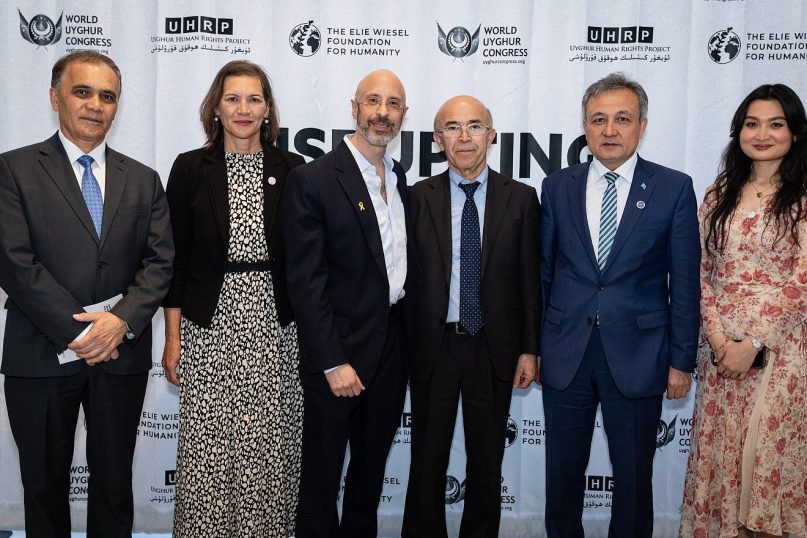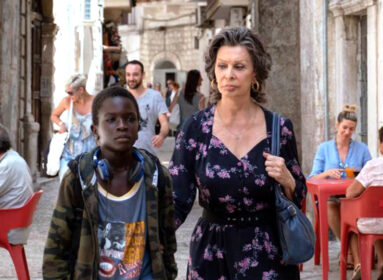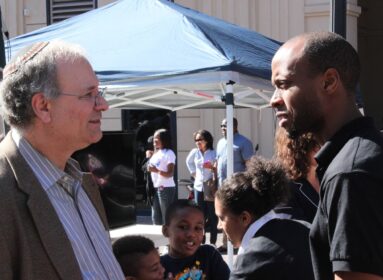
By Melissa Langsam Braunstein
The way Elisha Wiesel sees it, Jews need to get “back to business,” which means advocating for others in need, such as the Uyghurs in China, despite the ongoing war against the Hamas terror organization.
“We can’t let Israel-Hamas derail us into a position of fear, where all we do is think about ourselves and the needs of our own community,” Wiesel, who chairs the Elie Wiesel Foundation for Humanity, which is named for his late father, told JNS.
“We can’t let it stop us from doing the work we feel compelled to do,” he said.
“The world’s gonna hate Jews tomorrow, just as the world hated Jews yesterday, and if we sit around waiting for some moment the world doesn’t hate Jews, to do the things that we feel compelled to do,” Wiesel said, “We’ll be waiting a long time.”
Jews must “keep moving” even as the world hates them, according to Wiesel, who manages a hedge fund.
“We gotta do what we gotta do,” he said. “It serves my father’s memory and honor to fight on behalf of the Uyghur Muslims, and Oct. 7 delayed that, but it’s not changing it.”
Wiesel spoke with JNS about a two-day event at the 92nd Street Y in Manhattan titled “Disrupting Uyghur Genocide,” a joint program of the foundation, the World Uyghur Congress and the Uyghur Human Rights Project that drew about 120 attendees.
’Nothing like the Holocaust’
“The Chinese Communist Party threatens the Uyghurs, inserts Han Chinese into their families to get them to drop their Muslim traditions, pushes them to drink alcohol, prevents them from going to mosque and much more than that,” Wiesel told JNS.
There are also, he said, “accusations of forced sterilization and rape and torture and disappearances,” all of which recall “some of the worst stuff we remember from the 20th century.”
When the younger Wiesel took the helm of his parents’ foundation in 2021, he “wanted different lines of activity that would align with different roles my father played,” he told JNS. To reflect his father’s activism, he dedicated the first year to funding for the Uyghurs—a largely Muslim, Turkish-speaking group.
“The U.S. government estimates that since April 2017, authorities have detained more than one million Uyghurs, ethnic Kazakhs, Hui, members of other Muslim groups, as well as some Christians in specially built internment camps or converted detention facilities in the Xinjiang Uyghur Autonomous Region under the national counterterrorism and regional counter-extremism laws,” according to a 2022 U.S. State Department report.
The State Department cited the U.N. Office of the High Commissioner for Human Rights charges that the Chinese government committed “serious human rights violations” that might “constitute international crimes, in particular, crimes against humanity.”
Wiesel told JNS that he was drawn to the oppression of the Uyghurs for several reasons, including that “It reminds me of what happened to Jews in the 1940s.”
“Nothing is like the Holocaust. It’s not mass murder. I don’t believe they’re building death camps. There’s no crematoria,” he told JNS. “I don’t think that that’s happening.”
But a modern state using “all the tools of a modern bureaucracy, the most advanced technological tools to do surveillance, to forcibly reduce a population, through sterilization and population transfers, forced assimilation where kids are dragged off to boarding schools five days a week and told to hate their religion and distrust their parents” operates at a scale “that has that feeling of the Nazi machinery,” he said.
’Unpopular causes’
“My father loved unpopular causes,” Wiesel told JNS, citing Elie Wiesel’s advocacy for Soviet Jewry before theirs became a cause that American Jews embraced widely and for Bosnian Muslims.
“This was part of my father’s value system,” Elisha Wiesel said. “Go after the biggest bully committing the biggest crime. It doesn’t matter if it’s to Jews or not to Jews. This is how my father fought antisemitism. He fought antisemitism by living Jewish values on the world stage.”
With that in mind, Wiesel’s foundation opted to co-sponsor the conference in Manhattan with the two Uyghur organizations.
Wiesel told JNS that the foundation hired an artist, Chris Sojka, to create an installation that tells the story of the Uyghurs. Wiesel’s friends also brought Jewish and Muslim faith leaders together to demonstrate “that Muslims and Jews can work together on something positive, even as the world is kind of falling apart.”
“The stories that I heard directly from survivors will break your heart and fill you with admiration for what these people have gone through,” he said.
Wiesel told JNS that he met a man who learned he was on “a list” and fled China, leaving his wife and 6-year-old daughter behind.
“The CCP called him and said, ‘We have your wife and daughter. We can do whatever we want,’” Wiesel said of the Chinese Communist Party. “They brainwashed the daughter to say things like, ‘My father is a bad man. He’s against our country.’”
“He had to listen to this on the phone. He had to get a divorce from his wife to protect her overseas, and then something like a dozen of his family members were imprisoned,” Wiesel added.
Some panels at the two-day event reflected on TikTok and surveillance.
A speaker who addressed the latter said that the Chinese Communist Party spied on him even after he fled to the United States. Another Uyghur who visited him confessed that he had been paid to spy on the man.
“‘I told them where you live. I told them your phone number. I told them what medication you take and what pharmacy you get it from’—it was along those lines—with a veiled threat of ‘You could be getting poisoned, because of the information I’ve shared,’” Wiesel said. “This is crazy transnational repression that’s occurring on our shores, that the FBI has been unable to stop.”
Wiesel told JNS that Uyghurs and Jews share a good deal in common.
“Uyghurs are a community that care very deeply about passing on tradition and values and language to their kids in a way that very much echoes and resonates, as a father looking to do that with my children,” he said.
Both Jews and Uyghurs also have a “common enemy,” he added, referring to TikTok.
“China is artificially suppressing certain information streams and highlighting others. We’re on the same side of this,” he said. “The same people that are suppressing ‘Stand with Israel’ and boosting ‘free Palestine’ are the same ones who are suppressing all mention of the Uyghurs and of Hong Kong.”
He was pleased with several exchanges that occurred at the conference.
During a discussion about keeping Uyghur language and culture alive in the diaspora, an attendee offered to take a Uyghur delegation on a tour of Jewish summer camps.
“Jewish summer camps are one of the secrets for how Jewish culture survived in America, more than shuls, maybe more than the Jewish day school system,” Wiesel said.
PHOTO Elisha Wiesel
CAP: Elisha Wiesel (third from left) and colleagues the April 17-18, 2024 event “Disrupting Uyghur Genocide” at the 92nd Street Y in Manhattan. Credit: Courtesy of the Elie Wiesel Foundation for Humanity.








 Southern New England Jewish Ledger
Southern New England Jewish Ledger












